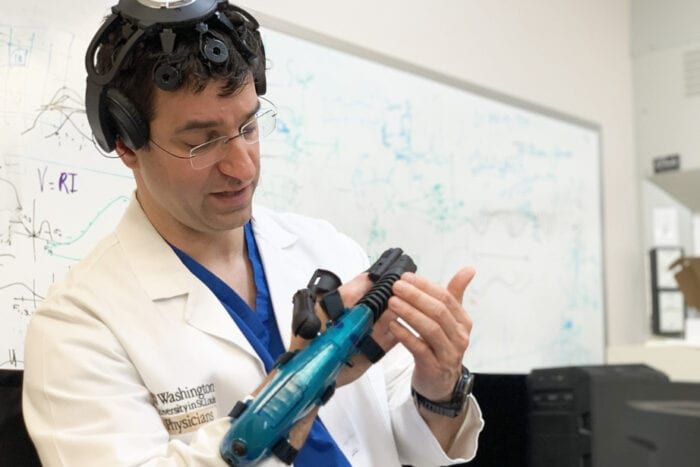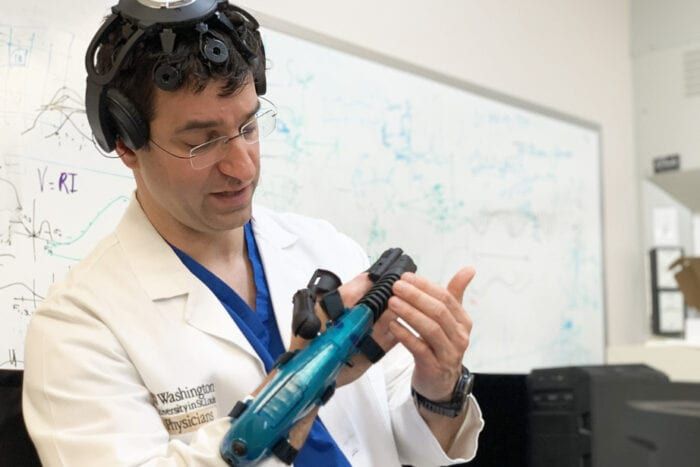
Eric Leuthardt types an EpsiHand device. Washington College
Brain-pc interface, or BCI, is the greatest desire of synthetic intelligence-obsessed business owners. The technologies is generally hyped by Tesla and SpaceX CEO Elon Musk, whose biotech startup Neuralink is acquiring an implantable brain chip aimed to “merge organic intelligence with machine intelligence.†That device is nevertheless a long time away from commercialization, but some of its envisioned functionalities have been understood by a scarcely-identified startup born out of a Washington College lab—with the full backing of the Fda.
Previous 7 days, the Fda approved the 1st machine falling less than the BCI group, a robotic wearable referred to as IpsiHand created by Washington College startup Neurolutions. The wearable is designed to assist persons disabled by a stroke get back control more than their arm and hand perform by using their thoughts.
IpsiHand is made up of two pieces: a wireless exoskeleton that fits around a patient’s hand and wrist and a compact headpiece that information mind action making use of non-invasive electroencephalography (EEG) electrodes.
The underlying science is found by a team of scientists led Eric Leuthardt, a professor of neurosurgery at Washington University University of Drugs in St. Louis. It’s properly understood that each individual aspect of the human brain controls movement on the reverse facet of the physique. For instance, if a individual suffers a stroke in the correct aspect of his mind, he will possible working experience mobility impairment on the remaining side of the physique. About a 10 years back, Leuthardt’s group identified that brain signals for entire body motion, recognized as ipsilateral brain signals, can be detected on the very same aspect of the brain as effectively. The difficulty is that when the reverse aspect of the mind is broken, these indicators become useless.
The notion behind EpsiHand is to discover a way to detect people ipsilateral signals with noninvasive EEG and use them to command an electronic hand brace.
Leuthardt cofounded Neurolutions in 2007 with Daniel Moran, a professor of biomedical engineering at Washington College, to commercialize this know-how.
“Generally, any motor impairments professional by a affected person six months after a stroke have been viewed as long-lasting,†Leuthardt said in an interview this week. “What we have identified with this system is that several people can get a significant enhancement in restoration of upper extremity motion when we would not hope them to get any. That’s not truly genuine for any of the current therapies for stroke aimed at restoring operate immediately after the first restoration period.â€
“People have been trying for a very long time to convert BCI from an experimental technologies into a thing that will definitely help people,†he added. “With this, we have demonstrated that BCI is last but not least prepared for primary time. I sincerely hope there are many extra these types of gadgets to follow.â€
The IpsiHand technique is approved for use in clients age 18 and more mature going through stroke rehabilitation. Neurolutions aims to make the device readily available in hospitals and clinics by the stop of 2021.

